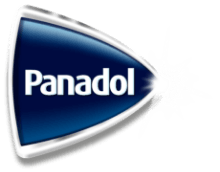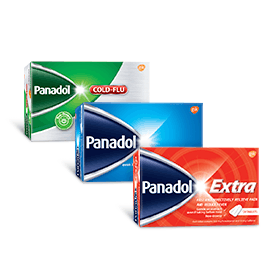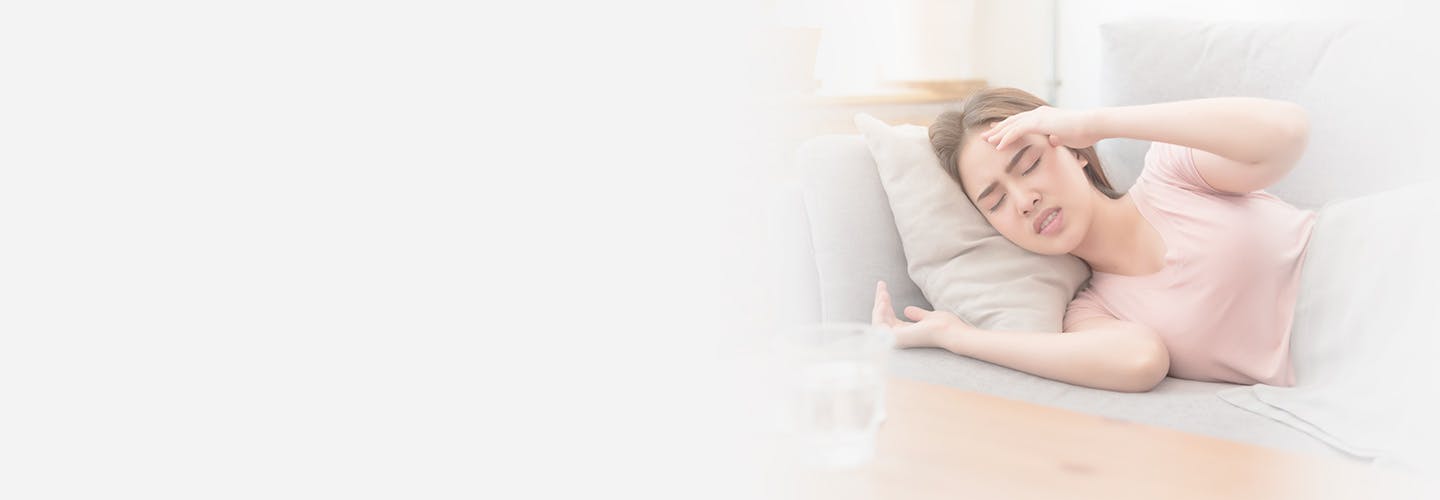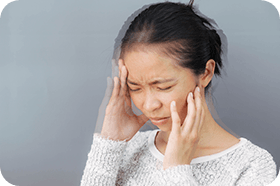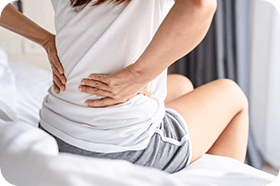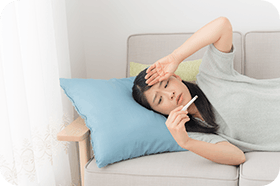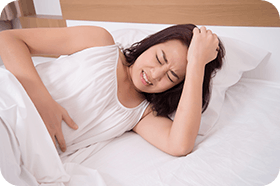Types of headaches—Symptoms, causes and treatment options
Oh, that pain in your head and scalp! It can stop you in your tracks—Headaches can be incredibly debilitating. But what causes headaches and what are the best headache remedies? Let’s find out.
Who gets headaches?
Headaches are very common. Around seven in 10 people get them at least once a year1. Recurring headaches affect approximately half of adults worldwide2.
But no headache is the same. There are many different types of headache, including the tension headache and cluster headache. But what causes headaches and what are the best headache remedies?
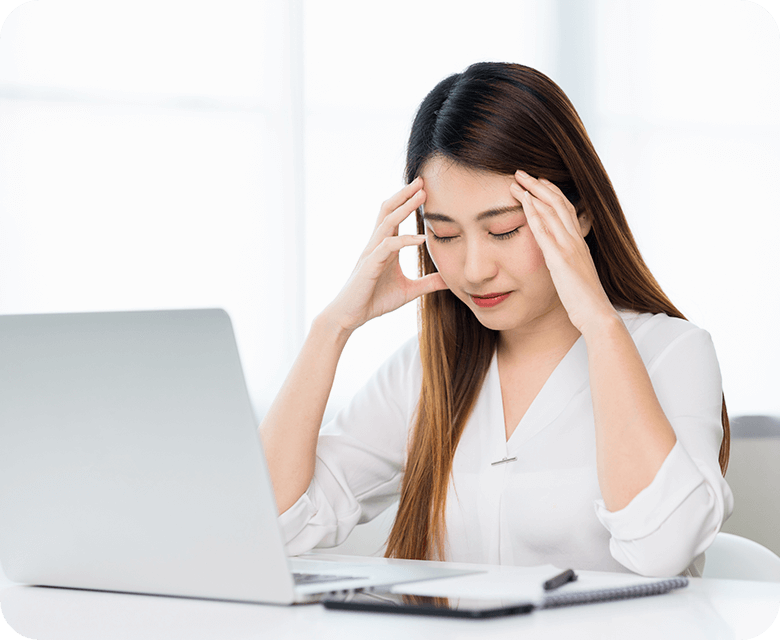
What are the top three signs of a headache?
A headache is often nothing serious, but the severity of symptoms can vary depending on the type of headache you have. Most headaches will have some or all of these symptoms:
1. Pain in or around the head
2. Pain or stiffness in the neck
3. A tender scalp
Headaches can feel dull or tense. They can be severe and last for many hours or come on quickly and disappear.
The signs of a headache depend on the type you’ve got, but (no surprise!) usually include pain in or around the head.
What are other signs and symptoms of headaches?
There are many different types of headache, such as migraines which tend to affect just one side of your head, or cluster headaches which occur regularly over a certain period of time.
These are most common types:
- Tension headache
- Cluster headache
- Sinus headaches
- Dehydration headache
- Rebound headache
- Migraine
You can read more about it in our dedicated article.
Symptoms differ depending on the type of headache.
Tension headache
The most common headache type is called tension type headache. It often feels like a tight band of pressure around your head.
Most people get tension type headaches from time to time. They are known as primary headaches, that means they aren’t caused by another medical condition. While uncomfortable and annoying, they are generally not severe enough to stop you carrying out everyday activities.
Possible symptoms vary according to the cause and severity of your headache:
- Dull, aching head pain
- Pain that starts at the temples or base of the head
- A feeling like a band stretched tightly across your head
- Equal pain on both sides of your head
- Stiffness or pain in the shoulders or neck muscles
The pain generally ranges from mild to moderate and can last anywhere from half an hour to a number of head-pounding days.
Cluster headache
As the name suggests, cluster headaches come on in clusters which last between 15 minutes to three hours. Some people can get up to eight cluster headaches in a single day.
Also a primary headache, cluster headache can feel much more severe than a tension headache. They are two-and-a-half times more likely to happen in men than in women but anyone can get them.
These possible symptoms often characterize a cluster headache:
- Pain that originates on one side of the head
- Pain that feels like it sits behind the eye
- Pain in the forehead or jaw
Sinus headache
A sinus headache is caused by an infection of the sinuses. These are the small, air-filled cavities that sit behind the cheekbones and forehead. When you have a cold or the flu, they can become inflamed and blocked.
This leads to a pressure build-up and that pressure is what you will perceive as pain.
The common signs of a sinus headache are distinctive:
- Pain in the forehead, around the cheekbones or eyes
- Pain that feels like pressure
- Throbbing pain
- Nasal congestion and thick green or yellow discharge
Sinus headaches will usually feel worse when you lean forward.
Dehydration headache
A dehydration headache happens when your body loses more water than you are replenishing. This can easily happen, for example, after a long workout or if you’ve had a stressful day and forgot to sip enough water throughout.
Pain can be felt around the entire head – the front, the back and the sides. But you usually wouldn’t feel any pain in your face.
These signs point to a dehydration headache:
- Pain anywhere around the head
- Extreme thirst
- Less frequent urination or dark urine
- Dizziness and confusion
- A dry mouth
If you get a dehydration headache and nausea, it could be a sign of severe dehydration. Rehydrate by sipping water slowly to avoid overhydration.
Rebound headache
Rebound headaches can happen when you come off certain medications. If you take pain medication frequently, you may get head pain when you stop taking it. They’re very common among migraine patients and those who get tension headaches often. Rebound headaches cause a dull pain sensation that may feel like a tension headache and tends to be worse in the morning.
Rebound headaches cause pain around the head, but also:
- Irritability
- Restlessness
- Trouble remembering
- Nausea
Other types of headache include thunderclap headaches which cause short but intense bursts of pain. These don’t last very long but they can feel particularly uncomfortable and you may also feel a headache and nausea at the same time. These types of headaches are rare and can indicate serious issues: Seek immediate medical help.
What causes headaches?
The exact cause of a headache can be difficult to pinpoint. Certain foods or habits might cause your tension headaches. Dehydration headaches happen because your body doesn’t have enough water. The causes of cluster headache aren’t the same as those of a sinus or a rebound headache. Different types of headaches have different causes.
If you’re unsure of the cause of your reoccurring headaches, seek medical advice.
Tension headaches happen when muscles contract in the head or neck. There are certain foods and activities that can trigger these contractions.
Cluster headaches are caused by a dilation or widening of the blood vessels, but researchers aren’t sure why this happens.
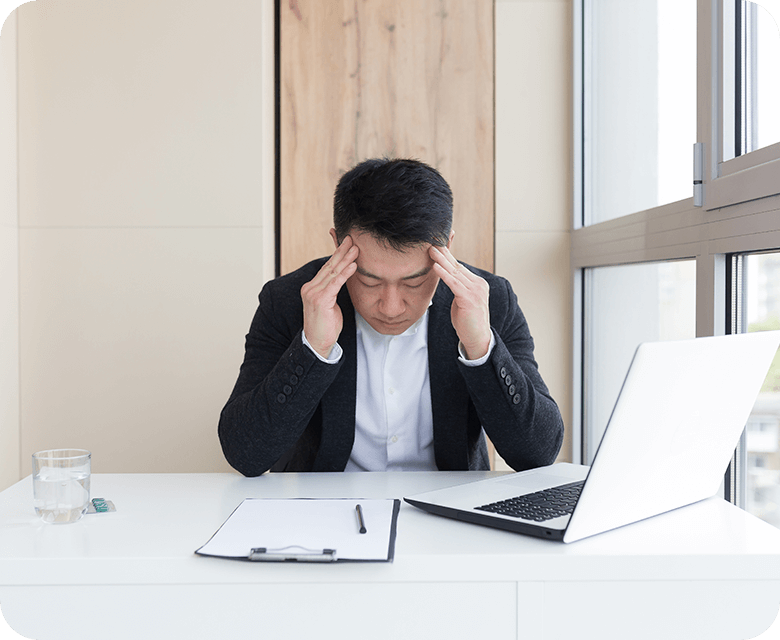
The most common triggers of different types of headache are:
Tension headache
- Stress (physical or emotional)
- Dental and jaw problems like clenching at night
- Eye strain (e.g. when sitting in front of the computer for prolonged periods of time)
- Smoking
- Alcohol
- Caffeine
- Overexertion
Cluster headache
- Alcohol
- Smoking
- Some medications like nitroglycerin to treat heart disease
- High altitude
- Bright light
- Overexertion
- Heat
Sinus headache
- Flu
- Common cold
- Allergies
Dehydration headache
- Dehydration
- Overexertion
- Caffeine
- Alcohol
- Certain drugs
Rebound headache
- Withdrawal from certain types of medication (e.g. pain medications)
- Caffeine withdrawal
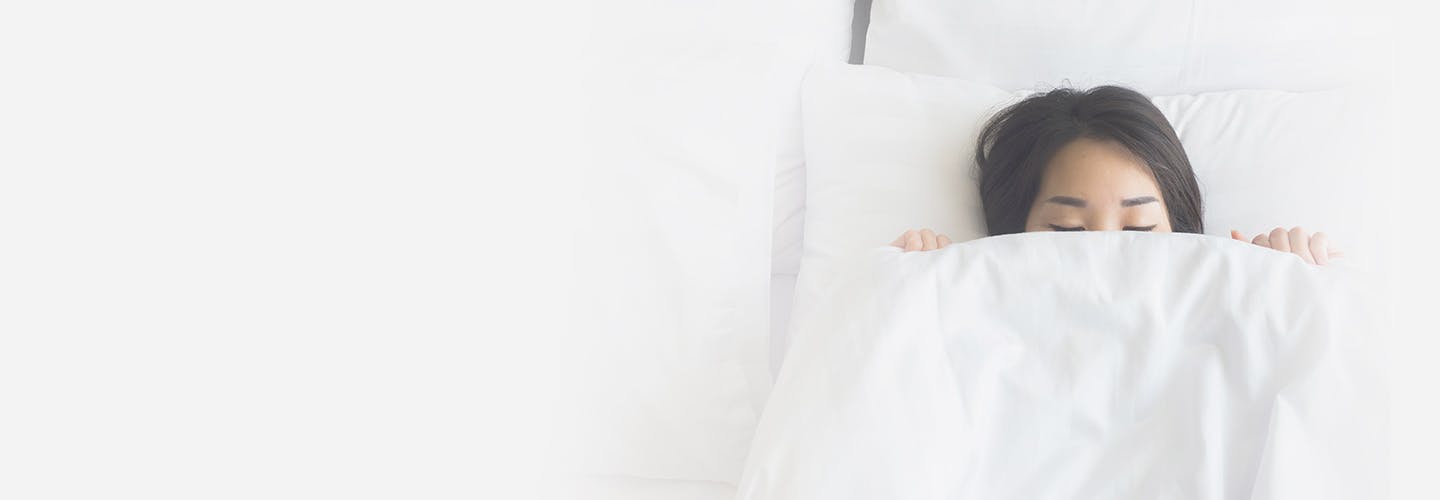
How to get rid of a headache?
Once a migraine or tension headache starts, try treating it with suitable pain-relieving medicine, such as Panadol Rapid. This formulation provides quick relief, and you can focus on what’s important again.
Other remedies you can try for mild-to-moderate headaches include:
- Rest and relax, or even try to sleep
- Take a warm bath
- Apply a heat pack against the painful area
- Receive a head, neck and shoulder massage
Over-the-counter Pain medication and home remedies may help you feel better quickly, but it’s important to address the underlying cause to avoid recurring head pain. If symptoms persist or you get frequent headaches, consult your doctor.
What’s best for headaches, paracetamol or ibuprofen?
Ibuprofen is an anti-inflammatory drug as well as a painkiller. That makes it a good choice when you’re also addressing an underlying inflammation. For example, migraine headaches can be caused by neuroinflammation.
- One review of clinical trials found that ibuprofen and products that contain paracetamol were similarly effective in relieving the pain of tension headaches after two hours.
- A dose of 1000 mg of paracetamol or Panadol Extra which contains 65 mg of caffeine is effective in treating acute migraine headaches. One of the benefits of paracetamol is that it causes fewer gastrointestinal side effects compared to ibuprofen.

How can I stop headaches happening?
Cluster and tension headaches can be chronic. If you have such recurring headaches, it’s important to seek the care of a medical professional and to learn what triggers them and avoid these triggers in the future.
It could be worth keeping a 'headache diary' to help identify what's causing your headache. For example, if you notice that you get a tension headache after drinking caffeine try to abstain to monitor if it reduces the frequency of your headaches.
Making some lifestyle changes is often the first step to helping you to address chronic headaches. Stress, poor posture, eye strain, certain foods or drinks all tend to be factors that can trigger a chronic tension or cluster headache.
By addressing the underlying causes, you should be able to minimize the frequency of your headaches.
Depending on the type of headache, your doctor may be able to advise on preventative medication or alternative therapeutic strategies.

